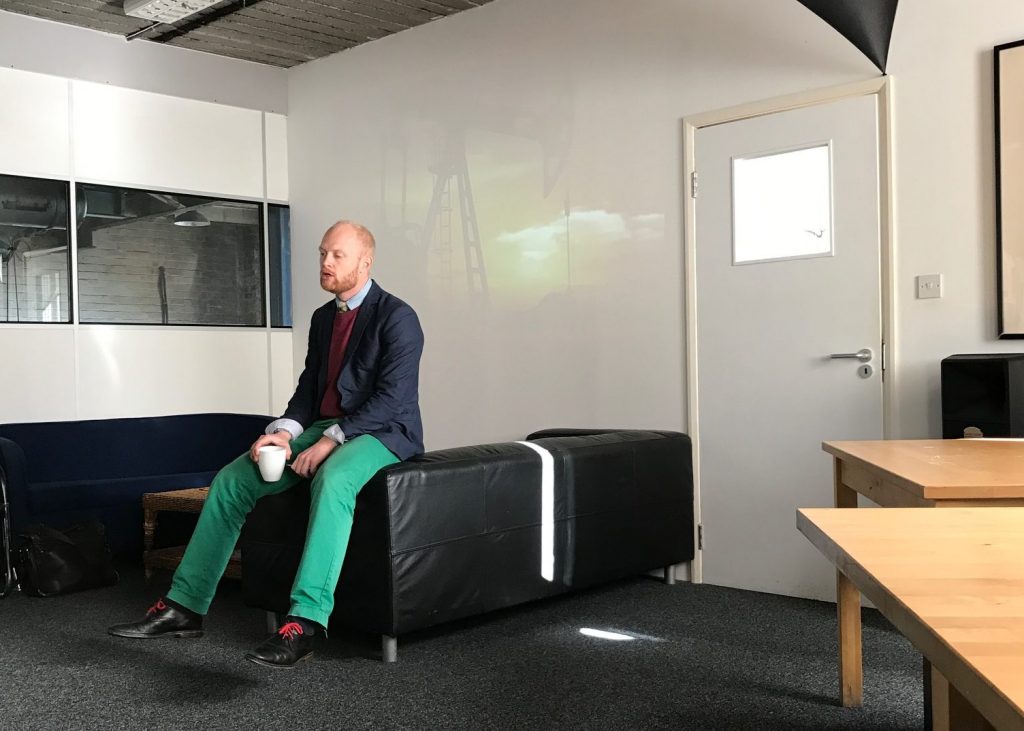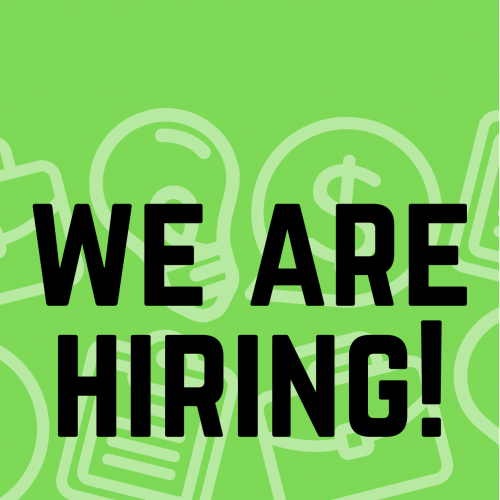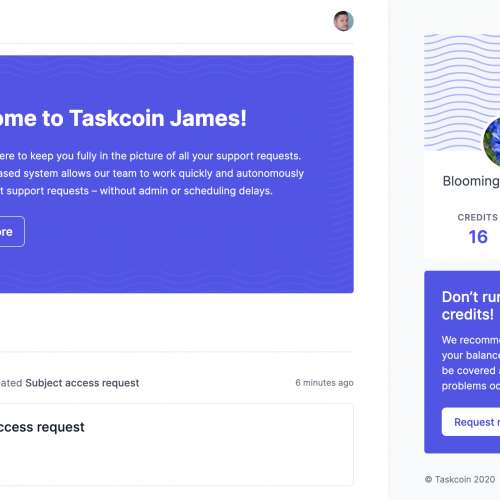Last week we were joined by Jonathan Holtby, Community Manager at the Hub of All Things (HAT), a multi-sided platform for personal data that enables individuals to collect their own data through the internet of things (IoT) enabled objects. HAT, now a startup, came out of a £1.2m multi-disciplinary project funded by the Research Councils UK (RCUK) Digital Economy Programme.
Jonathan’s talk centered around the changing data landscape, how data has become more valuable than oil and the way new technologies such as artificial intelligence (AI) and the IoT could help shape the future of data ownership.
Symptom, or cause?
Jonathan begun talking to us about tech events such as the introduction of virtual private networks (VPN), Tor Browser, adblockers, cryptocurrencies and the upcoming General Data Protection Regulation (GDPR).
Jonathan told us how he sees these events as symptoms, not causes, of the changing data landscape…
“Like the GDPR they’re not really causes. It’s not like a load of London bureaucrats got together and said ‘hey do you know what we should do? let’s write a bunch of data protection regulation’. They did this to try and respond to what’s happening in the data landscape today” he said.
A paradigm shift & the new oil
“We rely on the internet now much as the same way we do running water, electricity and roads.”
Jonathan spoke about how the internet has become deeply ingrained into our society. “A shift has been taking place for a couple of decades that has turned the internet from a tool that we access in order to accomplish tasks, into a ubiquitous part of our existence, deeply ensconced across every part of our lives. We rely on the internet now much as the same way we do running water, electricity and roads.” he said.
Jonathan explained how the data landscape is changing due to the rise of connected devices. “Between now and 2018 we’ll see the number of smartphones, tablets and other connected devices skyrocket” he said.
However, Jonathan said, “water, electricity and roads, are built by public servants who work for governments that we’ve elected, the internet was built by companies”.
Jonathan talked about how data is now considered to be as valuable as oil but with a minimal cost of extraction. “There is an estimated four trillion Euros worth of data estimated to circulate throughout the European economy by early 2020. With a frequency that is an order of magnitude greater than our next-most-valuable resource, oil, and a creation cost of literally zero” he said.
Jonathan believes companies have learned just how valuable personal information can be, and this will lead to the largest wealth and value creation event in society. “We have a weird sort of conflux happening where the growing ubiquity of tech, plus the almost universal corporate infrastructure, is going to create the single largest wealth and value creation event in society” he said.
Breaking the equilibrium
Jonathan talked about the current value exchange between consumers and internet technologies. He believes that we currently sit in an equilibrium, where we, the consumers, are happy to pay the price in exchange for the value we get from such technologies.
“At present the transaction that we get whenever we use technology is valuable enough that we’re happy taking the good value of technology and not ask any questions about the price that we paid to get that value” he said.
Jonathan sees this equilibrium changing as new technology becomes more valuable, and the price and level of personal data we give up increases. “As the value goes up and the things that technology is able to do, the amount of cost it extracts from us, all those things start to go up whether that costs us privacy or time. It’s going to start to change the way we look at the transaction itself” he said.
Left or right?
Jonathan pointed out that the rise in personal data extraction would leave society at a crossroads, and he believes when this happens two things could play out.
“As early stage tech people I think we have an opportunity to make an active decision in the kinds of roles that we want to play.”
“One is that corporations become more powerful as we, the users, become ever more weaker” he said. “The alternative is that businesses get more powerful, but we as technology-empowered citizens get more powerful as well.”
Jonathan believes it’s wrong to think that we’ve moved towards a place where corporate entities control how we live our lives and there is nothing we can do about it. “I don’t think that we just roll over and lie down at this point. Especially as early stage tech people I think we have an opportunity to make an active decision in the kinds of roles that we want to play, so let’s choose to do the second one” he said.
Giving the individual the means of production
“If we can try to increase the information that is owned and controlled by the individual consumer, it could help to increase their value.”
Jonathan believes the solution to stopping companies gaining the upper hand is to give individuals power over their own personal information. “Corporations have already shown us how information is greater than the highest rate of return, so if we can try to increase the information that is owned and controlled by the individual consumer, it could help to increase their value” he said.
“If you give the individual the means of production over personal information, you increase the value of that information for the customer, you can increase the worth as a digital consumer, product, and manufacturer.”
Artificial intelligence & the internet of things
In the future, Jonathan sees IoT increasing the amount of personal data in society. “IoT promises to generate a person-centric avalanche of data, that is almost certainly going to be the largest ever created in the history of human society.”
Jonathan believes the individual could benefit from this surge in IoT technology. “If the digital consumer’s value is tied directly to personal information, it is possible that the growth of IoT could do more for the empowerment of the internet-using population than any technology on the market.”
How we all win
Jonathan also sees AI as a rival of IoT in its potential to empower the individual. “Machine learning algorithms can turn information into insights that I can’t easily come up with on my own. They can turn historical resting heart rate patterns into daily mental and physical health profiles, and coffee shop appearances into valuable profiles for personal advertising; effectively spinning straw into gold.” he said.
Jonathan told us how he believes the first step in solving our data dilemma is to empower the people with their own personal data. “The first step to that is to centralise and collect personal information around the individual” he said.
“It’s innovation and new ideas that will be the catalyst in all this.”
Jonathan explained how early stage technologists, startups, and entrepreneurs have the opportunity to take these new technologies and help empower both companies and individuals. “If you’re building new tech, especially in IoT, build it in a way that empowers your end-users to take control over their personal information, so that they become more valuable to you, themselves, and everyone around them.” he said.
He noted that those interested in empowering digital consumers should support those working towards shifting the balance of innovation in favour of the consumer. After all, he said, “it’s innovation and new ideas that will be the catalyst in all this.”
We’d like to say a huge thanks to Jonathan for coming in to chat to the team and talking about the changing data landscape and how new tech could help to empower both companies and individuals. You can find out more about Jonathan on Twitter and you can learn more about The Hub of all Things at hubofallthings.com.
If you’d like to discuss your startup or project, get in touch with Simpleweb today.





